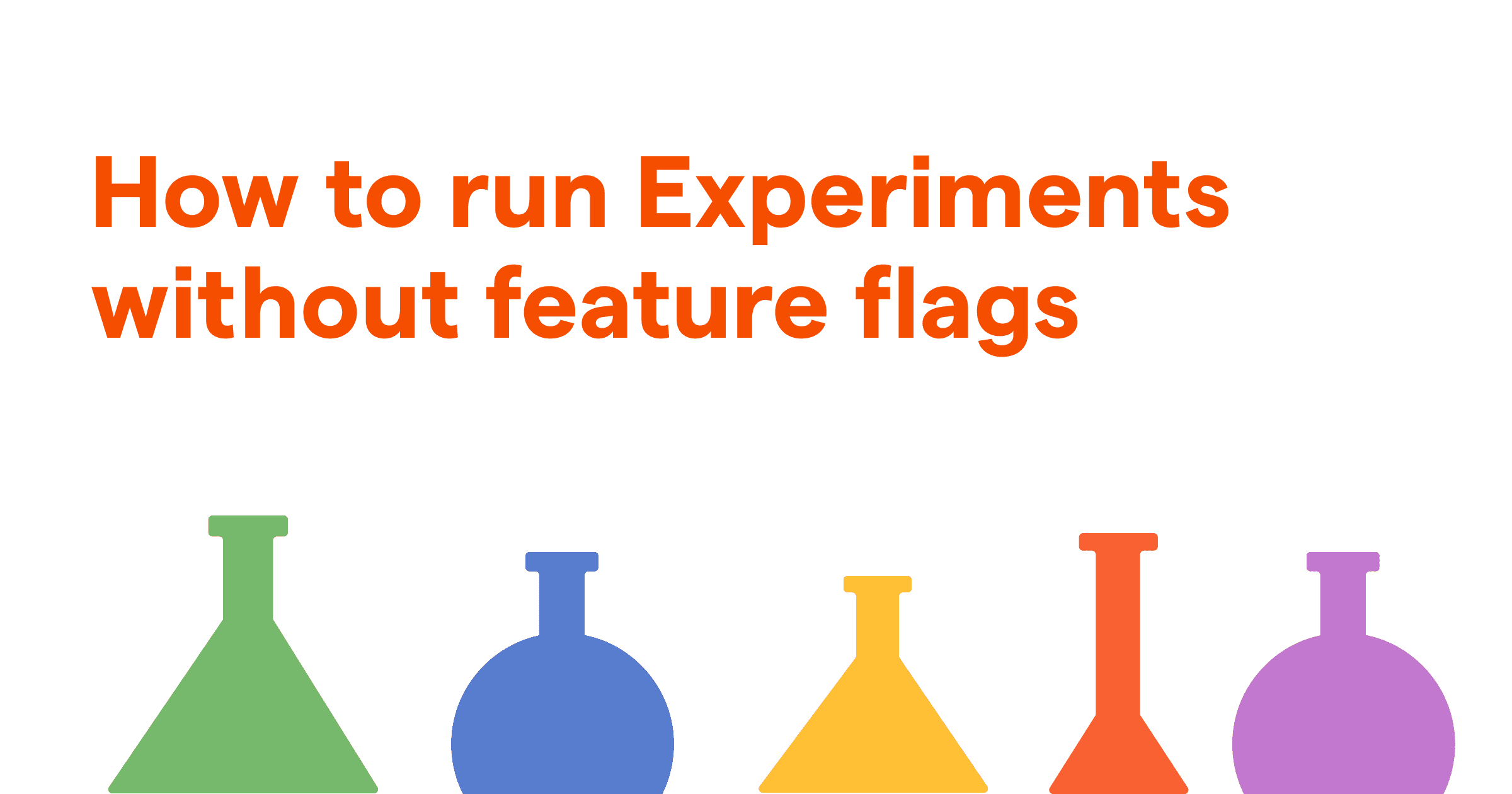This tutorial explains how to run an experiment in PostHog while not using our feature flag library, either because you've rolled out your own or, more commonly, because feature flag support doesn't exist yet in your favourite PostHog client library.
Step 1: Create an Experiment
The first step is to actually create your experiment in PostHog. Read our how to create an experiment tutorial if you need help here.
Once you have created an experiment, make a note of three things:
1. The feature flag associated with the experiment
In our example, this will be experiment-feature-flag
2. The variants you've chosen for that feature flag
In our example, these will be control and test.
3. The events involved in the target metric
In our example, this will be a user signed up -> $pageview -> user paid funnel. The experiment is purely frontend, but the metric we're tracking are these two backend events coming from their own libraries, along with a $pageview event coming from posthog-js.
Now, for the experiment to start tracking results and run its significance calculations, we need to instrument two things:
- Send events along with a special feature property
- Send
$feature_flag_calledevents
Step 2: Sending the right events
Experiments check whether an event belongs to an experiment or not by looking at a special property called $feature/<feature-flag-name>.
So, for our example above, we'll want all our events in the target metric ( user signed up, $pageview, and user paid) to send a property called $feature/experiment-feature-flag whose value is either control or test, i.e. the variant it belongs to.
The open question here is how do you determine the value for this property.
If you're using PostHog Feature Flags, and your favourite client library doesn't yet support experiments, you can get this value by calling the API directly. To do that, you hit the /decide/ endpoint. See the docs here for calling this endpoint. The two important parameters to send here are api_key and the distinct_id, which ensures you get feature flags in the response.
The response looks something like:
and there you have it, the value for experiment-feature-flag.
On the other hand, if you're worried about performance and don't want to make an extra API call, you can leverage local evaluation on our server-side libraries to compute your feature flag values. Read more to learn how to use local evaluation
If you're not using PostHog Feature Flags, check with your provider on how to get the values for a given person.
At the end of this step, you must ensure that every event in the experiment, no matter which library it comes from, has these properties. Otherwise, Experiments UI won't work. posthog-js does this for you automatically, but other libraries don't, as of writing.
Persisting flag across authentication steps (optional)
If you're dealing with an experiment where you want to persist behaviour across authentication steps, there's two more things to note:
Check the relevant box in the UI to persist behaviour across authentication steps.
Whenever you send an
$identifycall that identifies a previously anonymous user with a new ID, send both IDs in the/decidecall like so:{token: <whatever token you're using>distinct_id: <authenticated user's distinct ID>$anon_distinct_id: <anonymous user's distinct ID>}You only need to do this once after an identify call. For reference, check the posthog-js implementation
Step 3: Sending the $feature_flag_called event
It's often possible that the distribution of users between variants is skewed, such that there are a lot more users in test than control. To measure the relative exposure between variants, we use this event called $feature_flag_called.
Thus, every time you send an event related to the experiment, also send an event called $feature_flag_called with the following properties:
$feature_flag_response$feature_flag
The value for $feature_flag_response is the variant value you got from the API (control / test).
The value for $feature_flag is the name of the feature flag (experiment-feature-flag in this case).
In most of our client libraries, we send this event whenever we make the API call to /decide to get feature flags for a person. It's a good idea that you do the same.
And that's all! You should be good to run any experiment you want with these changes. Let us know if you face any issues.
Further reading
- How to safely roll out new features using feature flags
- Our guide to great open-source feature flags tools
- How to run Experiments on new users
